Sometimes an old wool garment can save a life.
There’s something about real 100% wool that I’ve always loved. Because it’s a natural animal fiber, it often retains a little lanolin with it. Lanolin is the oil of sheep. It’s the thing that repels moisture and keeps sheep alive, thriving and happy despite some of the most miserable grazing environments on earth.
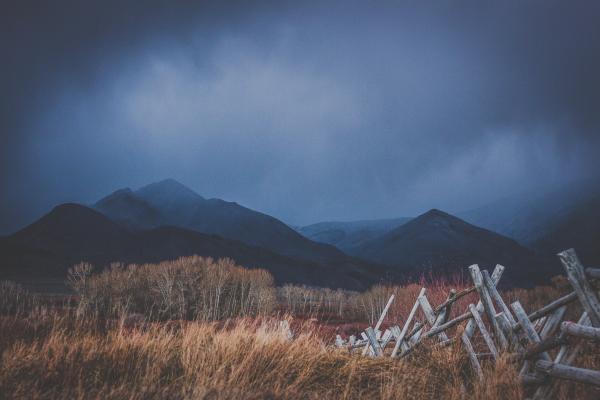
Lanolin used to be much more prevalent in wool that it is today; today’s “modern” woolen mills work hard to extract the oil from the fiber for use by our sterile society. The natural lanolin of the wool is viewed as unpleasant and quite inconvenient. It smells faintly like sheep. It feels a little oily. But I love that feel, and the smell. Each morning, before heading out into the cold and wet, I enjoyed pulling my old sweater over my head. As I inhaled deeply the fragrance of lamb, my mind could take a journey and see sheep herded across foggy and rocky fells in the high Cairngorms of Scotland, or in the barren alpine tundra of Wyoming’s Wind River Range with endless windswept wild landscapes beyond.
But not only does real wool smell, it also absorbs smells. If I’m wearing my ratty old wool sweater, Caryl can tell if I’ve stoked the outside wood burner, or sorted cattle in the corrals, or recently ridden a horse.
Konrad is lucky that his owner, son-in-law Ethan, likes wool too.
Although still young, Konrad was showing great promise. He had learned to bravely coach 1300-pound mama cows and their babies to travel calmly in the direction we wanted them to go. Good dogs like Konrad make our job herding cattle so much easier. Even the horses, I think, know the dogs save them a lot of work trying to move a “herd quitter” cow that had 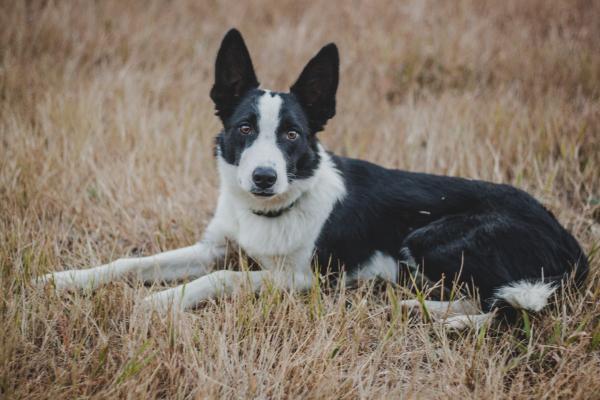 split from the herd and dove into thick brush.
split from the herd and dove into thick brush.
Konrad proved his mettle on a cold November day in 2012 that we needed to gather 160 cow-calf pairs from along the banks of the Salmon River. The wind was whipping up, and we had about 10 miles left on the long trail back from the range to Alderspring headquarters. Clouds were spitting snow, and we started out early in case the unpredictable mountain weather completely unraveled. The last part of our 35-mile trip back to the ranch was on the only paved roadway of the Pahsimeroi Valley; it would be difficult for a pickup to make an abrupt stop if there was snow on the road. Thankfully, most traffic up and down our valley was local folk used to encountering hundreds of head of cattle and cowboys using roadways to trail cattle to and from summer ranges.
We had settled the cattle the night before in a thick cottonwood forest. It was important to gather the cattle quickly and efficiently so we could beat the weather home. Konrad was working well, popping through the thick brush and downfall and bringing scattered animals together. Ethan worked together with him, as Abby and Melanie combed the beaches on horseback. Within only an hour the herd was traversing the steep breaks and cliffs, bound for the only bridge across the icy Salmon River.
We’ve come to depend on dogs like Konrad, but the younger days of range dog can be tough. They’re not wise to everything yet; like a teenage boy, they are strong on body, yet weak in mind. I recall when cowhands Josiah and Jess lost Kelpie dog Rustler to marauding wolves. Unknown to riders and dog, they were being stalked by the large canines for much of the day. Rustler drifted back a little too far as they herded the cattle up a steep draw up Little Hat. The pack seized opportunity and pounced. In seconds, it was over. Wolves are highly territorial against other canids. Even coyotes prowl silently when their large cousins are close.
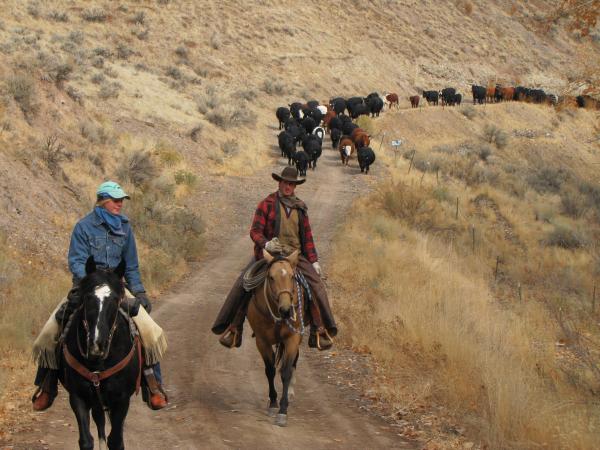
It was after a pretty grueling day the following summer that Ethan and Abby rode into Little Hat Camp on horseback under a canopy of stars. The midnight air was soothing after the long day in the saddle exposed to relentless sun-heat of high summer. Little Hat was the rendezvous point with Linnaea and Scott, who had also been on horseback for the entire day up another long canyon. Cows were placed high above the place we call Texarkana, and were on good grass, so the four cowhands had a day off from herding and instead had been tasked with the much-needed job of vegetation monitoring and inventory.
Caryl has put together an extensive data compilation in pictures and vegetation measurements to be able to quantify changes on our 70 square miles of wildland grazing range. “You can’t manage what you don’t measure,” she says. Indeed, she’s right. Already we have seen major regenerative responses on the landscape from our changes in management that previously had been grazed pretty much the same way for over 100 years.
Capturing data can be grueling in rough country and the two crews were exhausted when they met in Little Hat. They still had to head back to the ranch that night, unload horses, pull tack and eventually eat dinner. It would be well into the wee hours when they finally hit the hay.
And that is where the unfortunate loss of dog came in. Fatigue has a way of seeping into the bones and causing blank spaces in brain. Konrad fell in the dark of brain abyss, and the crew drove away, leaving him a view of receding taillights in darkness. He probably ran alongside for a while, but the tired crew didn’t see or hear. Windows were rolled tight against the cold night desert air.
An hour later, Crew arrived at ranch dogless and the light bulb came on. After unloading gear and horses, Ethan headed back up to Little Hat to try to find Konrad. No dice on dog. After calling and whistling for his Border partner, Ethan gave up at 4AM and headed exhausted to bed.
The next day dawned warm, and the sun rose ready to make early heat. Ethan got up after 3 hours of sleep and returned in daylight to find Konrad. As he drove up in the pickup on his return to the ranch, I saw no need to ask him: I could see by his expression that he was emptyhanded.
But ranch work never ends, and we were in the middle of haying. I met Dillon, our custom swather operator who was tasked with knocking down most of our 250-acre organic crop.
I stopped him as he made the rounds, opening up the perimeter of the first field. He roared up on the hay gobbling Massey-Ferguson disk swather and popped the door open of his air-conditioned cab. “Get in,” he yelled.
I looked at the windrow of fresh cut hay, mounded behind the whirring blades of the giant insect-like machine. It looked good; wide and deep. I climbed up the ladder, placed my 6’5″ frame on the tiny buddy seat, and pulled the door shut. Country music blared in the air-conditioned cool of the cab. As we rolled forward and the disc cutters commenced spinning at 12,000 rpm, Dillon began to talk. His language was quite colorful and quite loud to be heard over the swather sound and George Strait.
We bumped along at 15 miles per hour. It felt like 80 mph this far off the ground. The mesmerizing bend and gather of hay fell before us. “How’s it been going up on the mountain?” Dillon was asking about how things were on our summer grazing range. It was a common theme; when he wasn’t driving swather, he was horseback on the next range over. We often compared notes. He was born and raised in this valley, this Pahsimeroi. He had the typical quality of valley natives who considered our remote valley the Sovereign Nation. Most looked askance at newcomers; there wasn’t a welcome mat rolled out for us when we bought the ranch here, and it was more than 10 years before people got comfortable enough with us to talk. Dillon had been surprisingly atypical. Black sheep son that he was, he was often banished to live with the cows on the 100 square miles of wilderness they ran on, and after days of no one to talk to, he’d visit with anybody.
His words were rough as a cob, and he talked right frankly of those he didn’t like. He handed out advice like cheap candy. There was no gaming here. Just put it out there, plain and simple. As I listened to him rant about a particular neighbor, I realized he respected cows more than people. He pulled the lever that lifted the whirring cutting header and swung the swather in a quick 180, making us rock in our seats. He stopped talking as he concentrated on dropping the header as we surged into the next windrow of hay.
I took the opportunity to tell him the latest. “Ethan lost Konrad up in Little Hat.” Dillon flashed me a look, taking eyes off the swath of green for a second.
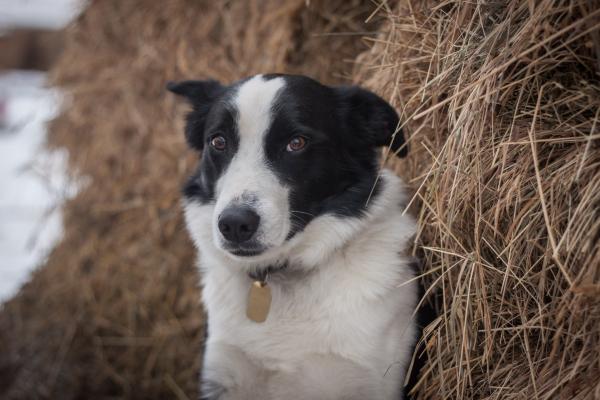 People around here know dogs. I mean, often, I meet a neighbor that knows my dog. Like he or she is one of the family. Knows their name, dog knows them, and knows whether they are any good. Cow dogs trump all. Especially good ones. They have a better standing than most people in a Valley person’s eyes. Especially if they are from the outside.
People around here know dogs. I mean, often, I meet a neighbor that knows my dog. Like he or she is one of the family. Knows their name, dog knows them, and knows whether they are any good. Cow dogs trump all. Especially good ones. They have a better standing than most people in a Valley person’s eyes. Especially if they are from the outside.
“Dang it. That Konrad was just turning out to be a good dog. He’s related to Arrow, ain’t he?” Arrow was a great border collie that I bought from Dillon, several years ago. She killed his chickens, so had to go.
“Yep. Grandson. It’s a bummer, cause he’s sure good with brush poppin’ those cattle.”
“Has Ethan been up there lookin’ fer ‘im?”
“You bet. Just this morning again,” I nodded.
“He put a coat out?”
“Say what?”
“A coat.” Dillon looked at me with his best ‘are you stupid’ look. Cards on the table. “You know. You put yer coat up there where ya last seen ‘im. He smells, finds it. Knows it’s the boss’s and lays on it until you come back.” He flashed me another look, nodding, now grinning. There was tobacco stuck in his teeth. “Works every time.”
“You’re kidding.”
His eyes were back on the tall grass, watching the hay coming in at fifteen miles an hour. He instinctively spit tobacco juice in Coke can. He wasn’t.
“It’s summer. Hot.”
“I know.” Eyes still forward. “What I mean is”¦a winter coat. That’s got his scent on it.” He looked me in the eye to make sure I got it. “Ethan’s scent. You know. Just make sure he gets his ass up there before the big dogs eat ‘im.” He paused. “Cause it ain’t if, ya know. It’s when. Be a shame.”
In local vernacular, wolves are ‘big dogs.’
We’d finished our perimeter round. I got off the swather, jumped in the pickup, and found Ethan a mile away on the other side of the ranch. I related Dillon’s idea. I’ll admit, it sounded a little like folklore. But anything was worth a try. We pulled up to the bunkhouse. Ethan grabbed his red and black Woolrich winter coat, and put it on in the 90 degree heat. “What are you doing?” I asked.
“Figured I’d better get my sweaty body scenting this thing up. It’s been awhile.” He stepped into his pickup, and in a cloud of hot dry summer dust, was gone, for the 3rd trip in 24 hours, bound for Little Hat Ranch.
He returned about two hours later. Dogless.
Early the next morning, Ethan made a fourth trip up to Little Hat. A grateful and a little skinnier Konrad sat tight, wagging tail on the Woolrich plaid as Ethan pulled up. He happily jumped in the front seat, and Ethan grabbed his trusty wool. First, it smelled of sheep; then Ethan. Now it was pretty doggy to be sure. That lanolin can sure carry scent. Good thing for Konrad.
Dillon’s gone now. Insulin shock. A lifetime of bad food and too much beer. We were the same age. Sure, he was cantankerous, but I miss him. He was always ready to dispense wisdom as he saw it although most of it was from the world according to Dillon and folklore. I gleaned some pearls though. And unlike most of my neighbors, he always had time to just stop and talk. He’d put my cattle in when they were out on the road. He’d pet whichever dog was in the back of my pickup, and they all loved him. He was a good neighbor.
People, like most of the world and life, are more complicated than they seem.
Happy Trails.
Glenn, Caryl, Cowboys and Girls.




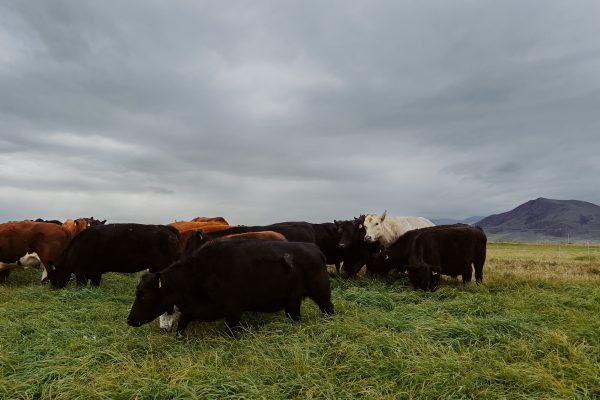

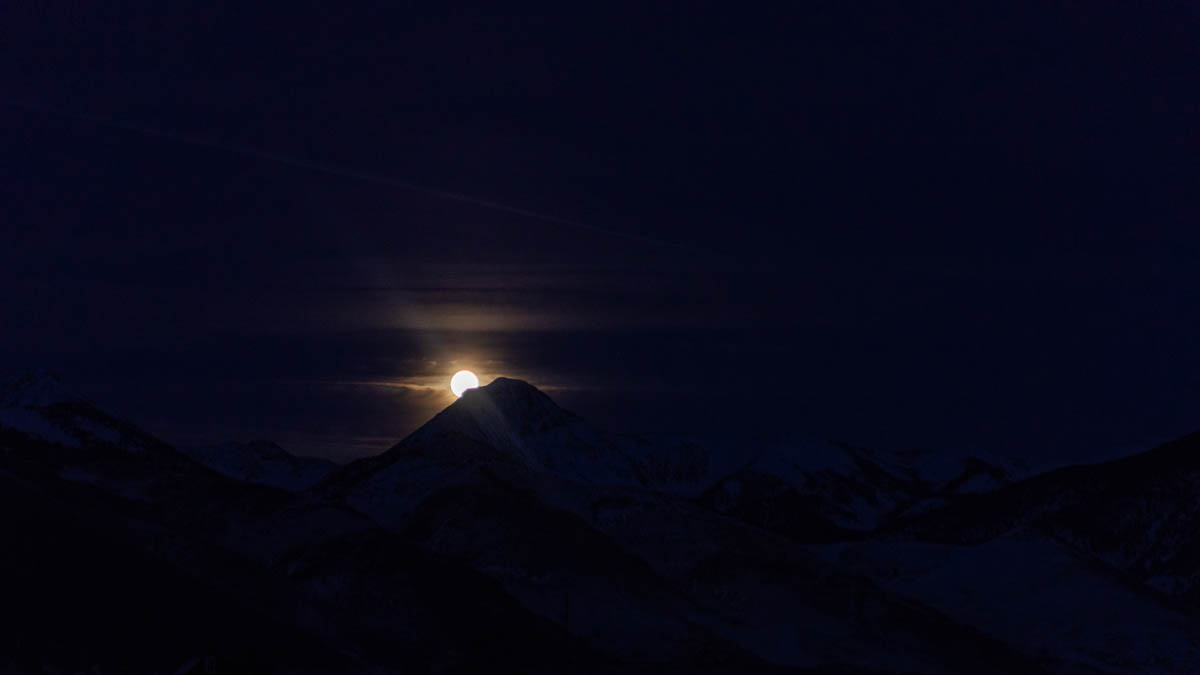

Leo Younger
Thanks for the story. Thanks for being there for us Real Organic Project consumers. Alderspring is my only source of muscle, fat, organs and bones.
Shirley
Thank goodness for people like Dillon. The world needs more of them. And Konrad’s eyes just melted me. I’d get very attached to the dogs!